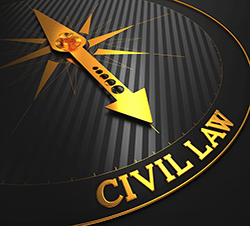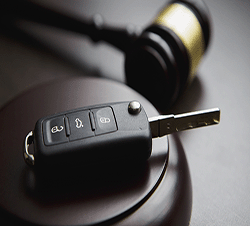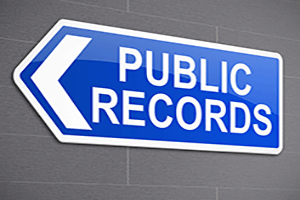When dealing with legal matters in Alameda County, California, having a firm understanding of the court system and knowing how to perform a court case search is important. Since Alameda County is part of the California Judicial System, there are a multitude of online resource that are publicly available. From running a court records search, to filing a claim or lawsuit. This guide will cover the intricacies of the county's judicial system, from criminal and civil cases, to probate, family, and traffic cases.
Introduction to Alameda County Courts
Alameda County, located in the San Francisco Bay Area, is home to a comprehensive judicial system. Its primary court is the Alameda County Superior Court, which handles a wide range of both civil and criminal cases. The county's court system is articulately designed to handle the large range of legal matters by dividing responsibilities among various courts.
Understanding the Court Hierarchy
The Alameda Superior Court is the primary trial court of general jurisdiction. This means it handles civil, criminal, family, probate, and juvenile cases. It's important to recognize that each type of case may be assigned to a specific division within the Superior Court, making sure that each specialized case is adequately supported with the proper judicial resources.
How to Perform a Court Case Search in Alameda County
If you need to locate information about a specific court case in Alameda County, you can perform a court case search using the Superior Court website. This is a necessary process for anyone involved in any type of legal proceedings, from lawsuits and litigation, to complex criminal cases. Here is the quick and easy way to track down court records with the publicly accessible search tools.
Online Case Search Tools: Alameda County offers various online resources that make it easier to search for court cases. These tools allow you to access public records and details about ongoing or past cases. To begin, you’ll need to visit the Superior Court's official website.
1). Visit the Court's Website: Start by navigating to the https://www.alameda.courts.ca.gov.
2). Select 'Online Services': On the homepage, look for the "Online Services" section. This is where you’ll find links to various case search tools.
3). Choose 'Case Search': Click on the "Case Search" option. This will direct you to a page where you can enter the necessary details to find a specific case.
4). Enter Case Details: You can search by case number, party name, or case type. Enter the relevant information to locate your case.
5). Review the Results: Once you’ve entered the information, the system will display a list of cases that match your search criteria. Click on the relevant case to view detailed information.
6). Request Help: If you need assistance because you cannot find what you are looking for, you can contact the Clerk's office @ 510-891-6024
In-Person Case Search: For those who prefer a more traditional interaction for accessing records, you can also perform a case search in person. This involves visiting the appropriate courthouse and requesting access to the public records.
1). Identify the Right Courthouse: Determine which courthouse handles the type of case you’re interested in. For example, family law cases are generally heard at the Family Law Division.
2). Visit the Courthouse: Go to the courthouse during its business hours. Be prepared to provide details about the case you’re searching for.
3). Request Public Records: Once at the courthouse, ask for assistance at the records or information desk. They will guide you on how to access the public records you need.
Types of Cases and Their Respective Courts
Different courts within the county's judicial system handle various types of cases. Having a basic understanding of which court to approach can be a big time-saver. Identifying the correct courthouse will ensure that your case inquiry or filing is processed correctly. Here are the various divisions of courts and the various cases they handle.
Civil Cases: Civil courts handle non-criminal cases that frequently involve disputes between individuals, businesses, and organizations. They can include contract disputes, personal injury claims, workplace issues, and property disputes. These cases are generally handled by the Civil Division of the Superior Court.
Criminal Cases: The criminal courts handle case in which a person is accused of breaking the law, or intentionally harming someone. These cases range from minor criminal infractions and misdemeanors, to serious felonies. These types of cases are managed by the Criminal Division. This division specializes in the vast range of criminal cases, which are often prosecuted by the county or state.
Family Law Cases: Family-related legal matters, such as divorce, child custody, and support issues, are handled by the Family Law Division. This specialized division mostly deals with the sensitive nature of family disputes and provides fair and amicable resolutions.
Probate Cases: Probate cases involve the administration and distribution of a deceased person's assets and estate. The Probate Division handles matters such as wills, trusts, guardianships, and the distribution of assets. This division tries to adhere to the deceased's wishes, so they are honored and that best legal practices are followed.
Juvenile Cases: These cases primarily deal with minors and juveniles who have been accused of breaking the law, or who might need a court intervention for their welfare. The Juvenile Division addresses these cases with a focus on rehabilitation, instead of punishments when possible.
Small Claims Cases: Small claims court is a platform for those seeking to resolve minor disputes without the need for a lawyer. This court handles cases with lower monetary values, making it accessible for those seeking a quick and cost-effective resolution. These cases are often resolved within a day, but occasionally run longer.
How to Lookup Alameda County CA Court Records
There are multiple ways to access court records for Alameda County CA. If you need physical certified copies of court documents, you can access these through the Superior Court's website by name or case number. However, processing may take a few days. If you just need to verify a court record online, you can do this through third party public record websites. These resources offer instant access to all public court case records online.
How to Search Alameda Court Superior Court Cases
If you need to access Superior Court Case Records, there is an easy solution. The Superior Court's website offers public access to view, or request physical copies of court case documents. You will need either the exact case number, names of the parties involved, or the name of the attorney to access record through there public portal. You can also request physical copies of records that can be mailed to you for a fee.









